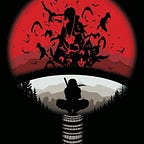From YOLO to 'Yo, No': Navigating the Shift in American Consumerism and Its Economic Repercussions.
In the shadow of a global pandemic, the American consumer ethos once encouraged by the principle of 'You Only Live Once' (YOLO) — a rallying cry for lavish expenditure on modern luxuries and indulgences — now confronts a stark reevaluation. Coined as the "YOLO economy," this period was marked by exuberant spending on cutting-edge televisions, upscale home renovations, high-end fitness equipment, and premium spirits. Yet, as the dust settles, we witness the advent of a more cautious fiscal era — the "yo, no" economy — a paradigm shift that may have profound implications for the broader economic fabric.
Emerging from the confines of pandemic restrictions, Americans, armed with augmented incomes and the residue of pandemic-induced savings, displayed an insatiable appetite for consuming goods and experiences previously foregone. This phenomenon, characterized as revenge spending, was propelled by a collective realization of life's ephemeral nature. "COVID-19 served as a grim reminder that the thread of life is precariously thin," remarked a Wells Fargo Investment Institute analyst. The shift towards immediate gratification reflected a widespread reevaluation of future financial planning, poised against a potentially truncated existence.
However, five years post-pandemic onset, signs of a reversal are imminent. The unfettered flow of consumer capital is ebbing, posing potential headwinds for economic stability. A pronounced trend is the migration of even the most affluent consumers towards discount retailers — a tactical shift indicating broader consumer reticence. Ongoing inflation issues, the depletion of pandemic-accumulated savings, and an increasingly unstable job market partially explain this decrease in spending.
Yet, an alternate perspective suggests that Americans are recalibrating their spending habits, seeking a sustainable equilibrium post-COVID indulgence. The recalibration, however, is not uniformly restrictive; expenditure on select experiences, like live concerts and air travel — evidenced by record-setting Memorial Day travel figures — remains vibrant. This nuanced consumer behavior underscores an emerging trend of selective indulgence and strategic economizing in daily essentials.
This evolving consumer landscape prompts pivotal questions about the trajectory of the U.S. economy, historically buoyed by consumer spending, a sector that accounts for approximately 70% of the U.S. GDP. Therein lies a paradox; the same consumer dynamism that shielded the economy from recessionary pressures in the inflation and interest rate-surcharged aftermath of the pandemic now teeters on the brink of reticence.
Amidst these shifting tides, the financial markets remain jittery, with significant stock market fluctuations underscored by disquieting economic indicators. The forthcoming fortnight, packed with pivotal economic updates including official employment data and the Federal Reserve's policy meeting, looms large. Stakeholders across the spectrum remain on tenterhooks, awaiting insights that could chart the course of economic policy and, by extension, consumer confidence and spending patterns moving forward.
The transition from the YOLO to the "yo, no" economy embodies a recalibration of American consumerism — a metamorphosis catalyzed by pandemic-era epiphanies and economic realities. As policymakers and financial strategists grapple with these evolving currents, the resilience and adaptability of the American economy, hinged on its populace's consumptive capacities and preferences, will be tested. The forthcoming chapters of this economic narrative will doubtless provide a telling indicator of the balance between austerity and indulgence in shaping the post-pandemic economic order.
https://finance.yahoo.com/news/yolo-dying-could-bad-news-113521660.html
